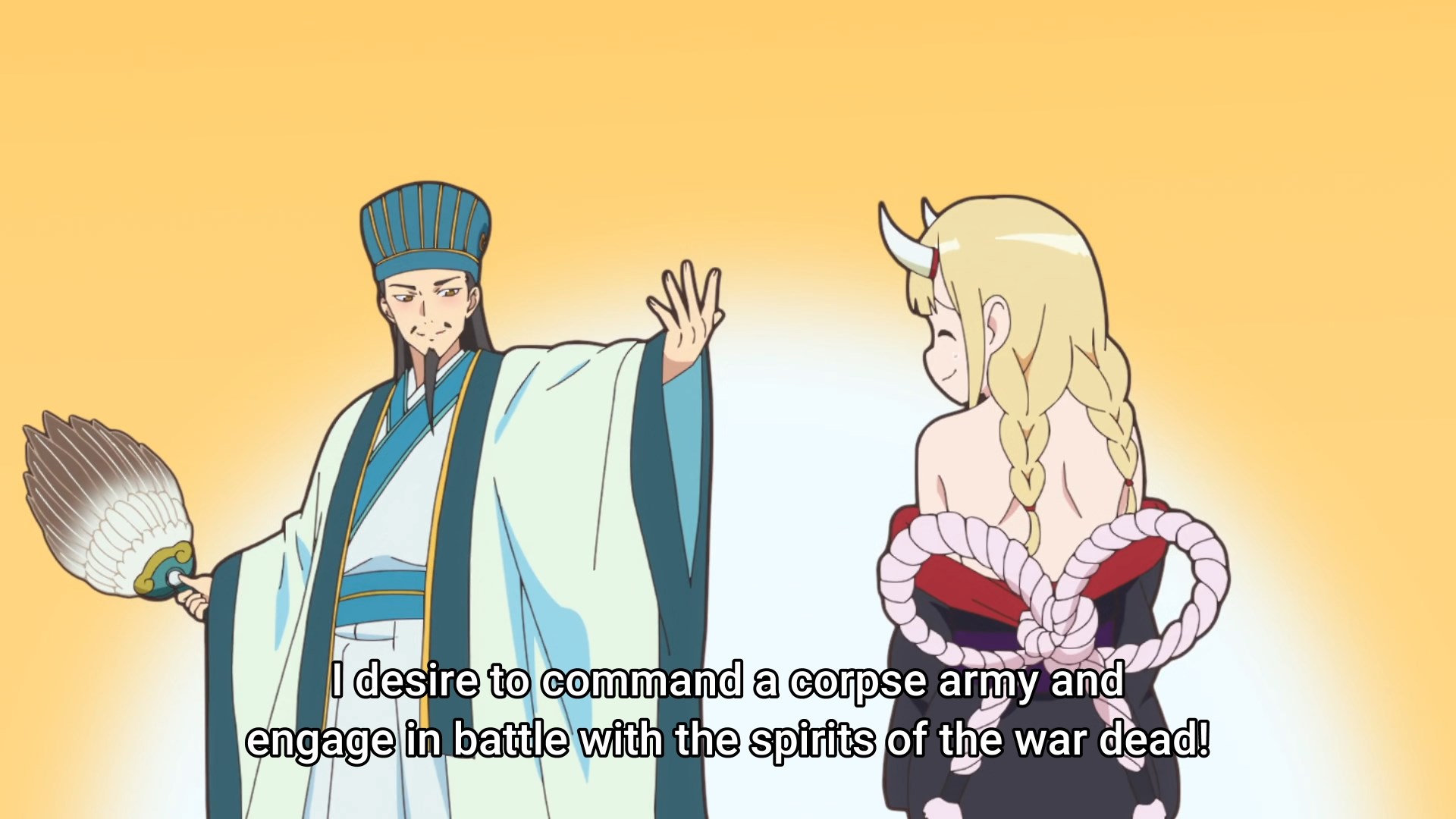Now here’s a show that wasn’t even on my radar back when the spring 2022 season started. Completely ignored it. Until — like everybody else — I saw the opening:
Can we talk about this opening a bit before we look at the anime itself? Insanely catchy, this is clearly not your typical anisong or idol production that you usually see as opening. A proper electronic dance song, something you could hear in any disco worldwide is something I’ve never seen used as an anime opening before. Where this song came from is even more interesting. Because this isn’t an original song, it’s a Japanese remix of a 2014 Hungarian summer hit, produced by the original artist. And if you’re old enough and both the original and the Japanese remix sound familiar, it’s because it uses a beat from a much older electronic dance hit: Sash’s Equador. This sort of borrowing is of course nothing new in dance music, always eager to use old favourites in new ways, but it sets a statement here. It promises that it will share that same international spirit.

How could it otherwise when the whole gimmick of the series and the original manga is that the famous Chinese strategist Zhuge Liang (courtesy name: Kongming), one of the most famous warlords from China’s Three Kingdoms period gets transported from his historical death bed to the streets of modern Shibuya, Tokyo’s party capital. He lands in the middle of New Years Eve celebrations, gets dragged along by the party people (paripi in Japanese slang) to a dance club and there hears Eiko. Captivated by her voice he vows then and there to use all his strategic wiles to make her a star. Which is indeed what happens, as step by step through carefully crafted strategems he raises Eiko’s profile from an obscure club singer to featuring at Japan’s hottest summer festival.
Eiko herself first came to Shibuya as a somewhat depressed teenager on a school trip and sort of stuck around and got inspired to be a singer. Her big example and person she looks up to is a fictional American soul singer clearly modeled after Whitney Houston, her song Eiko covers serving as a leitmotiv for her. Eiko is an optimistic, cheerful girl happy to go along with Kongming’s stratagems even while she’s unsure of what she’s doing. At times to be honest she becomes a bit too much just a pawn for Kongming to use, losing some of her own personality in the process, which is honestly my sole criticism of the show. Luckily it improves in the last third of the series as Eiko finds a new friend/rival while busking. At which point the show settles in familiar idol anime territory as Eiko’s passion and authenticity clashes with the manufactured, calculated drive for success of her friend and rival.
The third member of the cast is Kabetaijin, a succesful freestyle rapper, who disappeared after winning a legendary rap battle. This is the moment to talk about the excellent translation work done on this series by Jake Jung. (Shout out to Hi-Dive, the only anime streaming service to actually provided proper credits.) Translating is hard enough for normal dialogue, let alone song texts without it becoming awkward or stilted and that goes double for rap. It’s not just preserving the flow, it’s also that Japanese rapping uses different flows from what we’re used to in English and keeping that feel in the subtitles is very hard indeed. Jung succeeded admirably here, with some of the best translating work I’ve seen all year. What I also appreciated was that all the music got translated as well, which is not always a given even with a music orientated anime. Hi-Dive again has always been better than most in providing song translations and I especially liked them provding both the English translation and the Japanese text as romanji when a song was first introduced.
Kabetaijin is a somewhat more complex character than either Eiko or Kongming himself, somebody who got pulled into doing rap battles in high school through his friends. He likes rapping but as he got more and more succesful at it, the stress and anxiety it brought with it meant he started suffering from stomach ulcers. It’s that what made him drop out of the scene, together with his existing insecurities. A large part of Paripi Koumei‘s charm was seeing him overcome his anxieties and rediscover his love of rap, thanks to both his friends and his friendly rivals.
Spring 2022 was a season stuffed with good anime but even so Paripi Koumei stood out for its sheer energy and for how unusual it was. It was on nobody’s radar, certainly not mine until people started sharing that damn opening. Glad to see anime can still surprise me.
No Comments